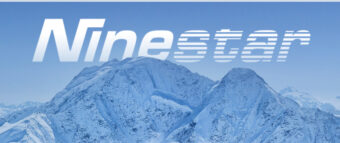Law Firm Contends Ninestar Continues to Sell Banned Products in U.S., Begins Investigation

Last year, the U.S. Department of Homeland Security announced that it was banning products made by Ninestar and several of its subsidiaries. The department said that the products, including printer supplies and printers, were made with slave labor in China, in violation of the U.S. Uyghur Forced Labor Prevention Act (UFLPA).
Now, however, a California law firm, Javitch Law Office, says that Ninestar and some of its partners are continuing to sell these products in the U.S. in violation of the ban.
In a press release, the law firm stated: “In a concerning development, China-based printer and cartridge manufacturer Ninestar continues to sell its products in the U.S. despite being added to the Uyghur Forced Labor Prevention Act (UFLPA) Entity List in June 2023. The UFLPA, designed to combat forced labor, prohibits the importation of goods from companies connected to forced labor in the Xinjiang Uyghur Autonomous Region. However, it appears that Ninestar, the world’s third-largest printer and toner cartridge manufacturer, is circumventing the ban by selling products under various brand names, raising ethical and legal concerns about the enforcement of these regulations.”
Possible Civil Action
The law firm, which says it works to uphold human rights and labor laws, is currently investigating the potential for civil action to enforce the ban and hold accountable those companies that continue to profit from modern-day slavery.
Ninestar’s Forced Labor Allegations
The firm notes that the legal presumption under UFLPA is that goods from companies on the list are presumed to be made with forced labor unless proven otherwise, a burden of proof so high it is nearly impossible to overcome.
It also notes that Ninestar’s actions not only violate human rights, but also give the company an unfair competitive advantage over U.S.-based and environmentally conscious manufacturers, who must adhere to ethical labor practices. “By allowing Ninestar’s products to be sold, the industry enables a supply chain tainted by modern-day slavery to continue unabated,” the firm says
Circumventing the Ban: Sales Continue Under Different Brands
Despite the ban, the law firm contends that Ninestar’s products continue to be sold, especially on e-commerce platforms, under various brand names. It notes: “This evasion of legal consequences is alarming, as it undermines the effectiveness of the UFLPA and allows consumers, often unknowingly, to support unethical labor practices. The U.S. government has made clear that entities can face civil and criminal liability for selling banned products knowingly, yet enforcement remains a challenge.”
Javitch Law Office Investigates Civil Action
Javitch Law Office is investigating the potential for civil legal action to hold those responsible for continuing to import and sell Ninestar products accountable. The firm’s investigation centers on the exploitation of forced labor and the violation of U.S. labor laws designed to prevent the importation of goods made under such conditions.
“Our investigation is focused on ensuring that companies profiting from forced labor face the appropriate legal consequences,” said a representative from Javitch Law Office. “By taking civil action, we aim to enforce the existing slave labor ban and protect the integrity of labor rights laws in the U.S.”
The firm is exploring multiple avenues for enforcement, including potential class actions on behalf of consumers and businesses harmed by the unethical competitive practices Ninestar’s products represent. The litigation could also serve as a wake-up call for companies still engaging in business with entities like Ninestar, compelling them to sever ties or face significant legal consequences.
Upholding Human Rights
As Javitch Law Office prepares its case, the investigation brings to light the critical need for stronger enforcement mechanisms for the UFLPA. The law firm notes that the global supply chain is increasingly interconnected, and companies must take responsibility for ensuring that their products don’t contribute to human rights violations. Consumers, too, must become more aware of the origins of the goods they purchase and the impact their buying choices have on human rights.
“The continued sale of Ninestar products despite a federal ban underscores a broader issue in global commerce, one where profits often come at the cost of human dignity. Javitch Law Office’s pursuit of justice in this matter reflects a commitment to holding companies accountable and ensuring that the U.S. remains a leader in the fight against forced labor,” the law firm said.
Conclusion
The law firm says that ongoing sale of Ninestar toner cartridges in the U.S., despite the company’s ban under the UFLPA, presents a disturbing reality: forced labor is still entrenched in global supply chains. It says its investigation into potential civil action could set a significant precedent, not only for enforcing the slave labor ban but also for ensuring that those profiting from human exploitation face justice.
As this case unfolds, Javitch Law Office says it will be a crucial test of the strength of U.S. labor laws and the country’s commitment to combating modern-day slavery.
More Resources
- September 2024: Ninestar Reports Big Financial Comeback for First Half of 2024
- July 2024: Ninestar Files Request to Remove U.S. Embargo
- July 2024: Ninestar Issues Upbeat Financial Forecast
- April 2024: Ninestar Reports Dismal Full-Year Results, But Slight Improvement for First Quarter
- March 2024: Ninestar Denied Preliminary Injunction to Overturn U.S. Embargo
- January 2024: Ninestar Forecasts Big Losses for 2023; Cites U.S. Ban, Other Factors for Declines

You must be logged in to post a comment.